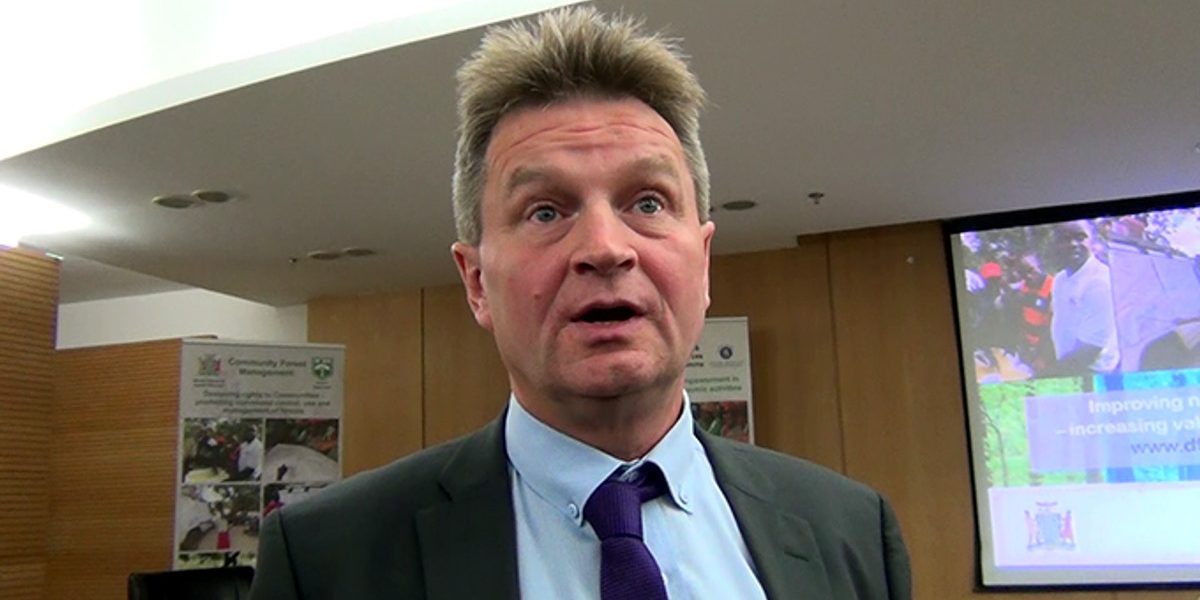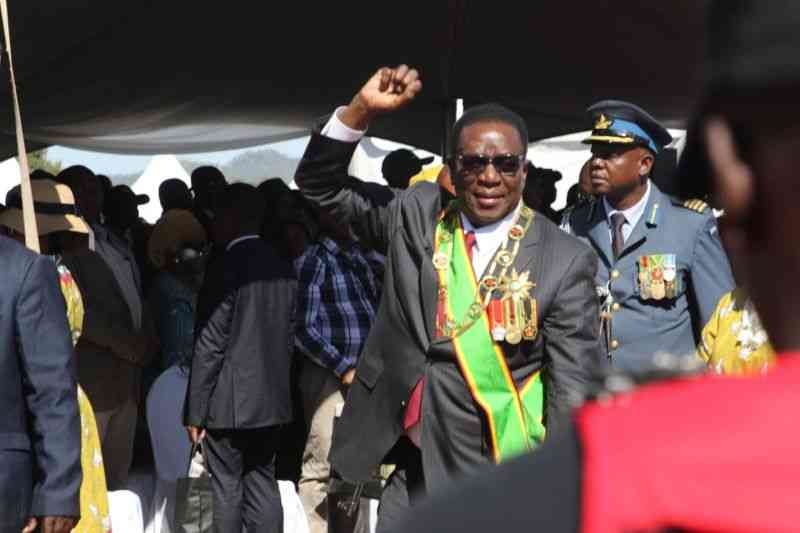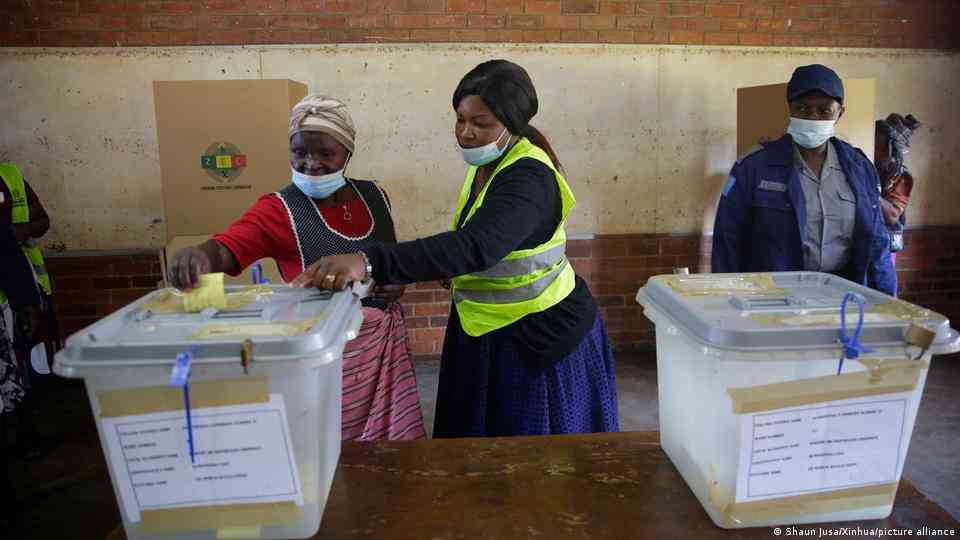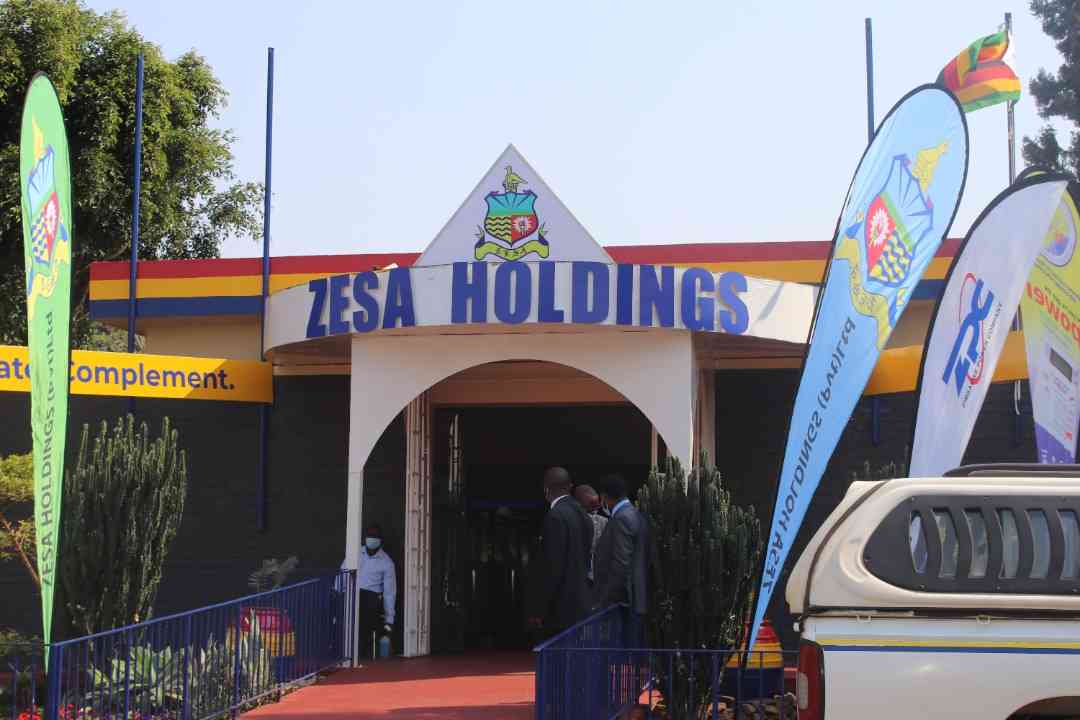
By Miriam Mangwaya VARIOUS stakeholders are sceptical that next year’s general elections will be free and fair before the implementation of electoral reforms.
NewsDay (ND) senior reporter Miriam Mangwaya caught up with outgoing European Union (EU) Mission to Zimbabwe head of delegation, Timo Olkonnen (TO) before his departure for a new posting in South Sudan.
Below are excerpts from the interview:
ND: What can you describe as your major strides in promoting EU-Zimbabwe bi-lateral relations throughout your stay in the country as the head of delegation?
TO: When you are thinking about bilateral relations with Zimbabwe which, of course, are multi-faceted, there are different components, but we have differences on several issues. We have an economic partnership agreement. We have a free trade agreement where we have had progress in the negotiation to expand the agreement.
We have our development co-operation agreement, where we are entering into a new co-operation phase. I think that’s one of the points I would raise, our new development co-operation framework for Zimbabwe 2021-27.
It was not easy to work on that because we had scarce resources. The re-establishment of the formal political dialogue between Zimbabwe and the EU was an important event, something that the EU wanted to happen and we are happy there was a positive response from the Zimbabwean side.
That’s one of the things I will remember in my time here. There are several ladders. The European Investment Bank opened credit lines for Zimbabwean private banks, a possible development as well. So many things have happened and with my job you never have a similar day and it is difficult to pick and pin point.
- Chamisa under fire over US$120K donation
- Mavhunga puts DeMbare into Chibuku quarterfinals
- Pension funds bet on Cabora Bassa oilfields
- Councils defy govt fire tender directive
Keep Reading
ND: You stated that there are some differences between Zimbabwe and the EU, what are those issues?
TO: I think some of those are well known. We had an important statement in February where high representative of the EU Foreign Affairs and Security Policy Josep Borrel issued a statement on behalf of 27 members, agreed by all the member States. We highlighted some of the concerns we had and we still have some of the concerns.
One issue is about the human rights aspect — the respect for people’s political and civic rights in Zimbabwe. On that topic, we have had discussions with government and we are concerned about the civic space, the Private Voluntary Organisations Bill, which has been a topical issue and its consequences.
Also, how to address vast human rights abuses, those would be some of the things we have been concerned about and we have done that through dialogue and also within the UN Universal Periodic Review on human rights in the human rights council. Zimbabwe has been well known for restrictive measures.
ND: What trade opportunities are there between Zimbabwe and the EU?
TO: When you talk to investors, they have a number of concerns around transparency, a level playing field, repatriation of profits, the issue of currency and corruption.
These are some of the issues EU investors have been raising during discussions with them. For us, it’s more about working with all member States and co-operating with government in trying to find and define the right framework, incentives or investment.
I felt the economic partnership agreement was a great possibility and there are also some positive sides, for example the horticultural exports have been increasing from Zimbabwe to the EU.
It’s clear that it is a win-win situation because Zimbabwe produces agricultural products which Europeans want. Europeans don’t produce for themselves because of the Southern and Northern hemispheres.
And there are companies that have taken advantage of this and some sectors are making good businesses from that.
I am passionate about agriculture because usually when you look at the playing field of Zimbabwe, it’s mainly about minerals, gold and other minerals whereas Zimbabwe has an advantage in terms of agriculture, climate, water resources and the soil.
Unlike minerals, agriculture is a sustainable business. In terms of economic reforms, we had hoped to see more.
ND: The EU early this year maintained its sanctions on the Zimbabwe Defence Industries (ZDI), but the government of Zimbabwe has on several occasions blamed sanctions on the deteriorating economic situation bedevilling the country. What is your comment on this?
TO: The Zimbabwean economic problems are not coming out of EU restrictive measures. We have in place an arms embargo and measures on the ZDI. So to claim that these measures would have some kind of negative economic impact on Zimbabwe would be misplaced.
I have often seen in these discussions a conflation of issues, for example when it is being discussed that Zimbabwe does not have access to credit from international financial institutions or from Western countries. It is not about sanctions. It is about the arrears situation. The fact that Zimbabwe is in arrears to creditors, then the issue is not about restrictive measures.
Zimbabwe failed and reneged on its loans and how we should deal with these issues and how it should pay. Other claims that EU member States are closing down their corporation programmes here — that again has nothing to do with EU measures. It’s a decision by member States to do so. There are miscomprehensions on what our measures actually mean.
ND: Zimbabwe is heading for another general election in 2023 following the disputed 2018 polls. What is your view on concerns raised by electoral stakeholders of an uneven political field tilted towards the ruling Zanu PF party? Is Zimbabwe ready for elections?
TO: Elections are important for any democracy. We need to give people the right to vote, to express their political preferences and mandate for them to be governed. That is why 2023 will be important for Zimbabwe.
The good thing about the 2018 election was the campaigning period prior to the election day itself. Of course, we had unfortunate events on August 1, 2018.
We have had these big opposition parties campaigning without harassment. That would be good if the campaigning freedom could be replicated in the run up to election.
I wouldn’t say that we need to copy everything that was done in 2018, but at least the fact that all political parties campaigned freely and that is something that I hope to see in the upcoming election. The EU electoral observer mission made a number of recommendations.
We have had a lot of discussions on what could be done, but Zimbabwe will decide what will be done. The follow-up mission came up with a conclusion that there has not been much progress, but there is a chance to proceed with reforms if the Electoral Act is amended.
So there is time for electoral reforms, but the window opportunity is obviously closing. We are planning to support the electoral process through our corporation instruments, but details are yet to be handed out. We think elections are a cornerstone of democracy and are worth our support.
- Follow Miriam on Twitter @FloMangwaya










